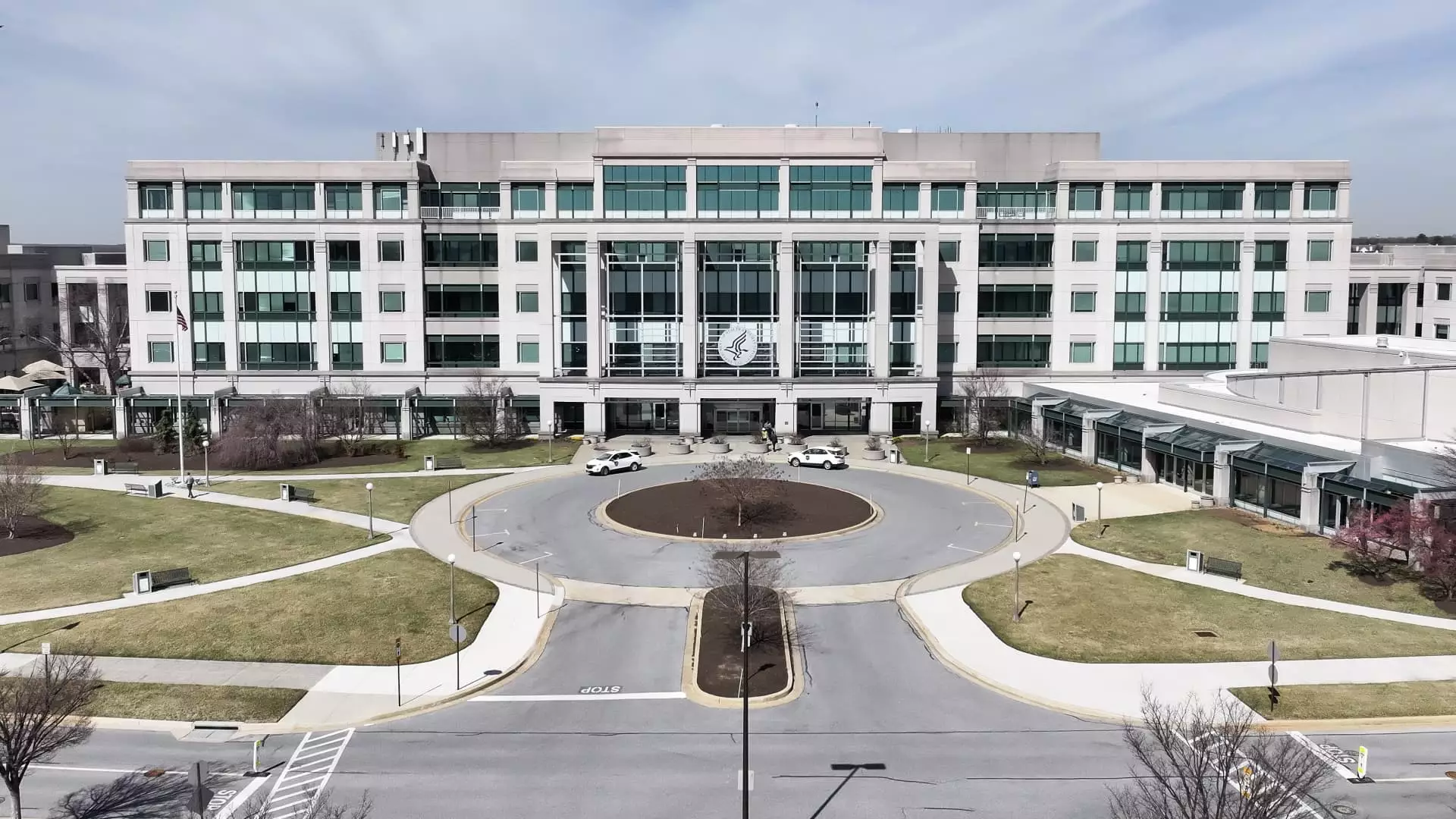In a move that has sent shockwaves through the healthcare community, the Centers for Medicare & Medicaid Services (CMS) has initiated substantial job cuts within its ranks. As Robert F. Kennedy Jr. takes the reins of the Department of Health and Human Services (HHS), the ramifications of his administration’s sweeping reorganization are being felt far and wide. Slashing 10,000 jobs across HHS, including a significant number from CMS, raises serious concerns about the integrity of healthcare services provided to millions of Americans.
While the objective of increasing operational efficiency may sound appealing, the real-life consequences can be devastating. CMS is not just any government agency; it oversees crucial health insurance programs that cater to approximately 160 million Americans. By undercutting its workforce, the organization risks not only the well-being of employees but also the health outcomes of those who rely on its services.
The Fragility of Minority Health Services
One of the most troubling aspects of the recent cuts is the impact on the Office of Minority Health. This division, established by the Affordable Care Act, works tirelessly to eradicate health disparities among minority populations. By curtailing its operations, CMS unwittingly jeopardizes the progress made in addressing chronic diseases and health inequities.
The importance of this office cannot be overstated—its research drives policy aimed at lowering healthcare costs and preventing disease among vulnerable communities. Ignoring the needs of these populations under the guise of efficiency is not only shortsighted but may also contravene the statutory obligations that bind the agency.
During a recent all-hands meeting, CMS acting Administrator Stephanie Carlton failed to provide reassurance about the future of this crucial segment, claiming that the painful aspect of cuts was “finished.” Are we to believe that the decimation of essential services will lead to improved efficiencies? This cavalier attitude toward the welfare of minority populations suggests a dangerous narrative prioritizing reduction over responsiveness.
The Role of Leadership in Times of Crisis
Compounding these concerns is the appointment of Dr. Mehmet Oz as the new head of CMS. Known more for his appearances on daytime television than for substantive contributions to healthcare policy, Oz’s ascent raises eyebrows. His promotion is emblematic of a broader trend within HHS that prioritizes celebrity over competence.
The reputation of CMS, already beleaguered by past administration decisions, could suffer further damage under Oz’s leadership. Effective health governance requires individuals with experience rooted in evidence-based practice—not merely the ability to attract ratings. Undoubtedly, the challenges facing CMS extend beyond internal restructuring; they encompass a shift in public perception and trust in the healthcare system as a whole.
Job Cuts Amidst Crises
As the U.S. simultaneously faces outbreaks of measles and avian flu, the timing of these job cuts raises eyebrows. Efforts to manage public health threats will inevitably be hindered by a workforce depleted by layoffs. Utilizing the budgetary landscape as justification for such drastic measures is profoundly misleading when set against the backdrop of an escalating healthcare crisis.
Moreover, reports indicating that FDA efforts have been suspended due to staff reductions only add fuel to the fire. The interdependence of health agencies means that when one is weakened, the network falters. Preventable illnesses should not become more common due to poor administrative decisions and unfounded austerity measures.
A Fragile Balance of Efficiency and Effectiveness
The philosophy that emphasizes efficiency must be carefully balanced with the effectiveness of services provided to Americans. The layoffs at CMS show a disturbing trend: sacrificing quality for supposed costs savings. In doing so, these decisions threaten the very fabric of what healthcare is meant to achieve—universal access and equitable outcomes for all citizens.
Carlton’s remarks regarding the cuts reflect an administration too absorbed in the mechanics of government efficiency to fully appreciate its implications on human lives. As she indicated, initiatives that were “probably the biggest group” affected risk losing the localized engagement necessary for better healthcare delivery.
The implications of CMS’s decision to reduce its workforce reverberate throughout the healthcare system. Reliance on rhetoric of efficiency may satisfy political agendas, but it ultimately undermines the core mission of providing quality healthcare. As citizens, we must demand accountability and ensure that our health services remain robust and inclusive—regardless of administrative whims.

